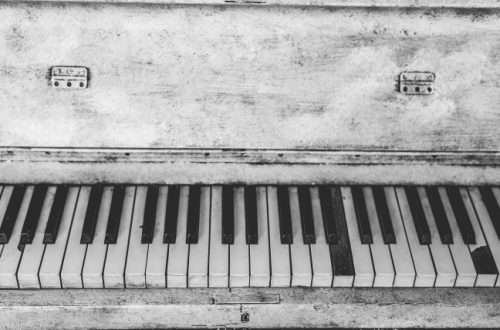
Anyone can sing?
See Studio monitors in the Muzyczny.pl store

Is there anyone who hasn’t asked this question? Is there anyone who, singing after Jerzy Stuhr, did not give himself a boost by repeating the famous phrase “but that’s not the point, if what is good for?” This is where the knowledge of the song usually ends and “lalalala” begins. We know this scenario. How about trying to look for an answer to this question for real?
Singing in traditional cultures was primarily used to express one’s emotions on the forum of the community in which one lived. It also fulfilled a utility function. Black people imprisoned in plantations in the southern part of the United States sang not only to express their pain, but also because singing the songs balanced their breathing and increased their fitness and productivity. The same was the case with ritual songs in our culture, e.g. hay cuts, as well as work songs, e.g. during the call of shepherds grazing their sheep in the mountains.
Many songs have survived to our times, e.g. travelers’ songs, whose rhythmicity means that walking a long distance is not a problem, because the breath caught between one phrase and the other, slows it down, extends the exhalation and works to keep the walker in good condition. Singing has amazing properties to heal the physical and mental sides of our lives. Before it became an aesthetic form, singing itself, it was just a way of expressing itself, like human speech. Elements such as the emergence of opera, its development (of course towards an increasingly aesthetic sound), as well as the first music festivals and vocal competitions that began to appear after World War I, significantly influenced the development of vocalism and its transformation from applied art into high art. However, it is a double-edged sword.

The advent of more and more brilliant singers has created a chasm between those who have great control over their instrument and those who simply use it. There is no need to hide the fact that the former owe their genius not only to their musical predispositions (popularly known as talent), but above all to long and systematic work (individually or with a teacher). The second group consists of those singing in the shower, humming with the daily washing up of dishes, or activating vocally only after consuming the relaxing substances. This group also includes people whom society affectionately calls those whose ear has been stepped on by an elephant. Paradoxically, they are most drawn to singing. Why? Because they feel subcutaneously that they want to express something for which they need their voice, but their performance is not positively received by the environment. The latter is my favorite group. Every day I work as a teacher of singing and voice emission and it gives me great pleasure to work with those who are stigmatized by society as those who certainly cannot sing. Well, I believe they can. Anyone can. The difference between the first and the second group is that the former know how to improve when something does not work out, the latter need help. This help does not consist in training the ear and painstakingly repeating the exercises performed by the first group. The problem is a blockade, a stigma that was imposed in childhood or adolescence by a music teacher or parent who could not show empathy for the words “you better not sing anymore”. Physically it manifests itself in the form of shallow breathing, a lump in the throat or just falsification. The last, interesting thing does not take place outside the consciousness of the counterfeiter. You probably know people around you who, when encouraged to sing, immediately warn “nooo, the elephant stepped on my ear”. What is also the case for those who do not care so much about it, but are also aware that “these are not the sounds”. So they can hear.
Listen, everyone can sing, but not everyone can be an artist. Besides, recalling the lyrics of the song: “Sometimes a person has to / suffocate otherwise “, I want to remind you that singing is still a natural need for many people. Denying yourself it is like refusing yourself to scream, cry, laugh, whisper. I think it is worth going on a journey to find your voice. It’s an amazing adventure, really! Finally, I give you a quote from my favorite Sandman:
“Undertaking climbing is sometimes a mistake, but a missed attempt is always a mistake. (…) If you give up climbing, you won’t fall, it’s true. But is it that bad to fall? A defeat so unbearable? “
I invite you to experience a wonderful adventure with the help of your voice. In the following episodes, I will tell you a bit about techniques worth getting interested in, people worth listening to, and tools that can help us develop a love of our voice.





